The first case of the head of the Moscow border detachment
Voennoye Obozreniye continues to publish materials from the book of memoirs of retired colonel Vasily Kirillovich Masyuk, head of the 117th Moscow border detachment.
Who will go with the commander
So, from the Khorog border detachment, as the author wrote in a previous publication, several vehicles with border fighters are heading towards the Kyrgyz city of Osh (over 700 km). This is an escape. There are about a hundred border guards. We need to stop them.
To this end, by order of the head of the Murghab border detachment, Colonel Valery Efimovich Avdonin, the deputy head of the political department of the detachment, Major Vasily Masyuk, is moving to the calculated point on the route in BMP-1 with a crew in order to stop the convoy and try to understand the reasons for what happened, to protect the soldiers of the border from stupidity and grave consequences.
From that moment on, everything was focused on training the crew, checking the technical condition of the combat vehicle, replenishing the NZ and drinking water supplies.
The choice of the BMP-1 commander Sergeant A. Pavlenko, the driver-mechanic Private S. Murodov and the gunner-operator corporal A. Dmitriev was no coincidence. It was the best crew, the winner of the competition between two motorized teams.
I personally had to repeatedly witness the skill of driving and marksmanship of the crew members both during the day and at night. I understood that at the heart of all this was the exhausting work of many days of training, the work of the head of the outpost, senior lieutenant A.V. Ustinov on training his subordinates, as well as the absolute moral and psychological compatibility of the crew.
I had to do driving and shooting with this crew more than once, and I had no doubts about these guys. Knowing the crew members well, I was sure that I can rely on them entirely. Briefly and clearly conveyed to them the nature of the task that we need to perform.
Their expressions showed that they were embarrassed. The only thing they asked was, would the fugitives also capture our armored vehicle? To which I instantly gave an unequivocal negative answer, and the logic of the development of further events only confirmed this.
Moving from the MMG-2 park to the settlement point of the meeting took about forty minutes. Arriving at the place, he carefully examined the area adjacent to the highway. The primary idea turned out to be really solid: by placing the BMP across the road, we deprived any type of transport of the freedom of maneuver and detour.
But something was wrong
In terms of wartime conditions, this was an ideal place for setting up an ambush, but in this situation it was about soldiers-border guards, their own, relatives in spirit, form and content. Intuition dictated that something was wrong in everything that had happened.
The motives and cause-and-effect relationships of such an unexpected act of the fighters, undoubtedly, had a different nature, and I had to carefully understand this.
With years of military service behind me and the experience of serving in various officer positions after the border political school, I learned a lot from my senior commanders, colleagues and mentors. The most important thing is that he himself was, as they say, from the blood of a soldier and was well versed, knew the soul of a soldier and appreciated his work.
I didn’t really believe that the fighters would decide on such a desperate and daring act without good reason. He understood perfectly well the other, that in this spontaneously formed collective there are leaders. Usually it is one or two fighters who have subjugated everyone else. Another thing is important - if from the first minutes of the meeting I fail to establish contact with them and I cannot identify potential leaders, the entire original idea can be crossed out.
At around 14:30, two trucks appeared on the road, which slowed down 50-60 meters and drove up close to the BMP. The cars were driven by civilian drivers - they were civilians from a separate automobile battalion, which was stationed in the city of Osh.
I talked to them about the traffic situation, business, health and mood. They reported that in the area of the old fortress they saw a convoy and soldiers who were filling up with water and swimming. Nothing alarming that could attract attention was observed on their part.
From all that we heard, it became clear that in 40-50 minutes the column could reach us. We gave the trucks the opportunity to pass freely and completely closed the highway.
The crew members, at my command, took a radio station with them and settled down on a hillock about 150 meters from the BMP. They established constant contact with the detachment's communications center and were ready to transmit everything that they would observe.
Let's have a smoke. And no nonsense
The first car appeared. She walked at a speed of 80-90 km per hour. Sitting 15-20 meters in front of the infantry fighting vehicle, sat down on the roadway and lit a cigarette.
The ZIL-131 car overcame the hillock and stopped on the side of the road 30 meters away from me. The driver did not turn off the engine. Two people got out of the cockpit and headed in my direction. Murmurs and discontent were heard in the back. As soon as the border fighters began to approach, he got up, put his hand to his uniform cap and introduced himself.
- Major Masyuk - Deputy Head of the Political Department of the Murghab Border Detachment. Introduce yourself who you are and what is the purpose of your arrival?
Before me stood two tall sergeants of Slavic appearance. Strong, knocked down guys. They had no outward signs of aggression: they were calm, but their obvious inner tension indicated that the conversation would be peaceful, but not easy.
In their eyes, one could clearly read only bewilderment and another important question for them: what is this officer doing here? He is one, but us ... Is he in his mind?
In this psychological confrontation and assessment of each other, it was important to be the first to strike a psychological hook. Which followed from me immediately.
- Comrades sergeants! - said, referring to them. - From now on, I am your commander, you can completely and completely rely on me. I do not know all the circumstances of what happened, but now my task is to help you and everyone else.
Whatever one may say, you have violated the law, violated the requirements of the Oath and statutes. It will not be easy for you to overcome the five passes, and almost impossible, but I dare to assure you that even if you pass them, you will still not be allowed to enter the plain, will be overfished and tied up like puppies.
The court will be strict and impartial. Think about yourself and your parents. I take upon myself the responsibility to understand everything, to give you the opportunity to serve you in our detachment and to demobilize with a clear conscience. Now I propose to march to the detachment's shooting range, where we will be stationed.
I promise and give the officer's word that each of you will be under my personal protection and inviolability. I will live with you in the barracks, I will meet and talk with everyone. I will report my findings and proposals to the higher command, but everything is on schedule, we will be engaged in combat and political training on a daily basis.
Therefore, gather everyone and bring everything that I told you. Around, step march. And no nonsense.
No formalities
I understood that now not a single trifle, not a single detail should be missed, and most importantly - to calculate and identify informal leaders and subordinate these fighters through sergeants to a clear, manageable military order, which still had to be formed.
They never introduced themselves to me, but I realized that they were clearly not up to it now. We will dispense with formalities for now. I clearly understood that I had gone too far, since much of what was said was beyond the scope of the powers entrusted to me. It would be better for employees of the military prosecutor's office and military counterintelligence to do this. But there was no choice.
The rest of the cars came up. Border fighters with noise and clamor jumped off trucks to the right and left of the road. Only at that moment I had to make sure with my own eyes that there were about a hundred border guards.
They huddled in groups, smoked, argued, shouted. After some time, a team of ten people gathered near the first car. There were mostly sergeants. Among them, one stood out, with whom I had already had a talk. What they were talking about at that moment, I did not hear. They consulted for a long time. And my inner tension increased almost every second.
Four people separated from the group, approached, and stood in front of me in one line. My "old friend" began to speak. I had to interrupt him and demand that he introduce himself.
He reported.
- Sergeant Gordienko, Ivan Abakumovich.
- From Ukraine? Countryman? - Immediately followed by my question.
- And you? - the sergeant immediately retorted with an answer.
- Originally from Ukraine, in 1974 he was called up for urgent service, served in a school, military service, an academy, now I am serving in the Murghab border detachment as deputy chief of the political department of the detachment.
- And where will you be from in Ukraine specifically? - he asked a clarifying question.
- From the Cherkasy region, Zvenigorodsky district, the city of Vatutino, - was my answer.
Countrymen!
What they heard was a shock for all four. As they exhaled, they sounded: “Can not be. Wonders. And I am a Comrade Major from Olshany", - Gordienko gasped.
This was my father's homeland, where I spent my childhood, and where I knew everything and everyone living in those parts like the back of my hand. My uncles, sisters and brothers lived there.
It turned out that Gordienko's mother worked with my cousin Valya in the collective farm accounting department. It really was a miracle. Other sergeants were from other districts and regions not only of Ukraine, the RSFSR and the Baltic republics. In a word, a complete international.
By the measures taken, which can be written and talked about for a long time, the border guards were subordinate to me. I divided the entire composition of the group into sections, appointed section commanders, held a Komsomol meeting in the field, and together we chose the Komsomol bureau. The column made an organized march and were taken to the field training center of the Murghab border detachment.
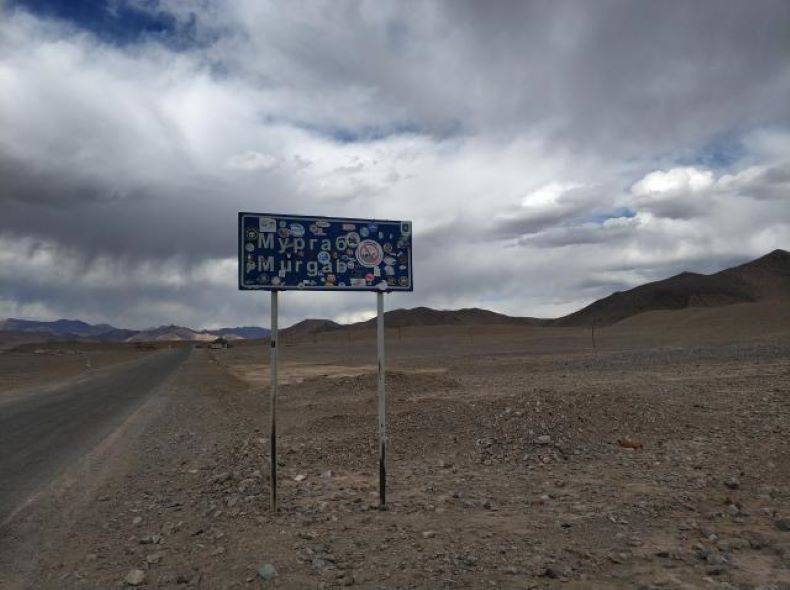
I reported to the head of the detachment and the head of the political department on the results of the work done and asked to send the field kitchen and food, regulations, manuals and change of underwear for the fighters. The shooting team of the detachment FTC and military engineers, who are nearby in the engineering yard, became part of the reinforced reserve border outpost. The total number was 127 people.
I lived with the soldiers in the barracks. Put this unit in proper order. The whole day, from morning to evening, the soldiers had a daily schedule. Classes were held, including in combat and fire training. I insisted, and the head of the detachment supported that as long as we are talking about his newly formed reserve, then there should be no indulgences in his preparation, including fire training day and night. The border guards were shooting according to schedules and very well.
Stand up and win!
Very soon, the newly formed unit was ready to carry out any command task on command. I was satisfied with the fighters and the results achieved. Over the entire period of time, they became close and dear to me, and most importantly, deep in my soul I was grateful to them, that they believed and trusted me.
When Lieutenant General Anatoly Nesterovich Martovitsky flew in by helicopter and saw the soldiers of the outpost after my report, he, I must admit, did not believe his eyes.
His meeting and conversation with the soldiers was long and easy. It was not just a general who spoke to them, but a border guard to the bone, who had gone through a huge life school of the border and military operations in Afghanistan. I saw and felt how he was deeply worried about everything that happened to the fighters, and there were moments when his eyes were full of tears, and his voice trembled.
In those minutes, it was not the military leader who spoke to us all, but the father, teacher and mentor. Everyone understood perfectly well that in those minutes the fate of each fighter was practically being decided, and everything ended quite well for each of them, not counting the statutory penalties that each suffered for one or another accomplished offense. This was quite fair.
In a word, the result of the work done for Martovitsky was clear, and this finally convinced him of his decision to report to Moscow his proposal on my candidacy for appointment to the post of head of the Moscow border detachment.
At that time, the detachment was in the thick of the most complicated Tajik-Afghan events and the beginning civil war in Tajikistan. I learned about this from Lieutenant General A.N. Martovitsky after a month and a half. This is how my path of serious commanding trials began, where the question was unambiguous - to withstand and win.
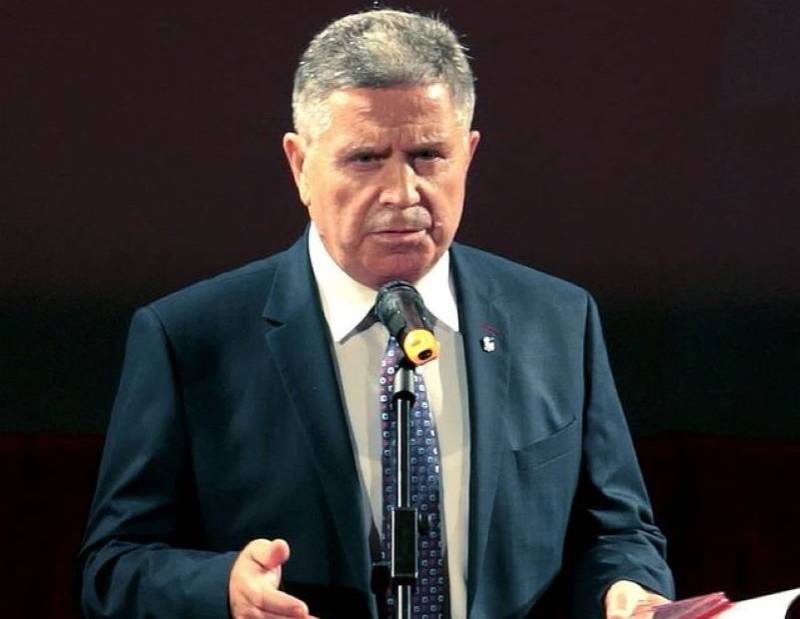
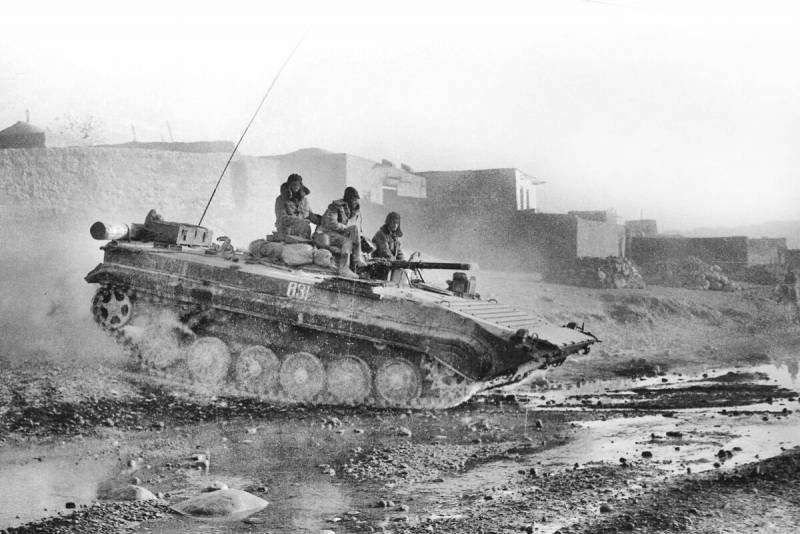
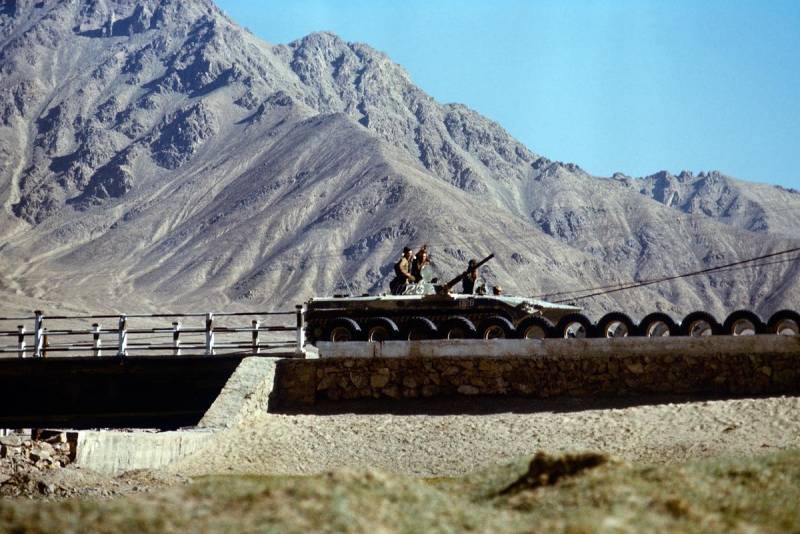
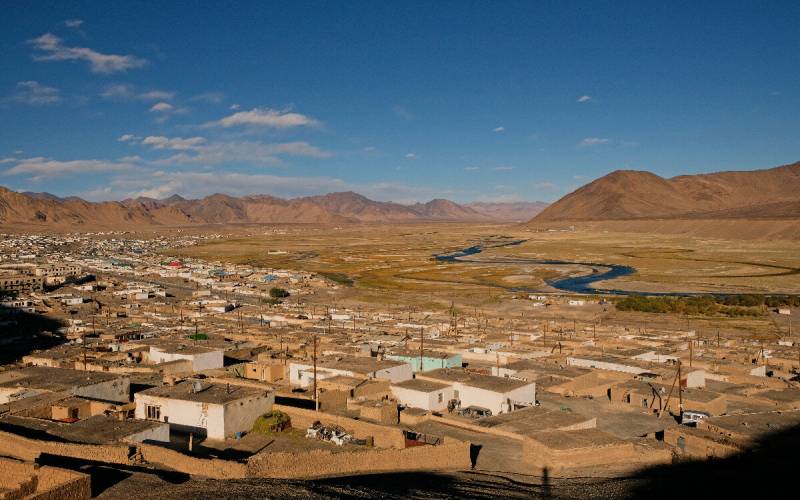
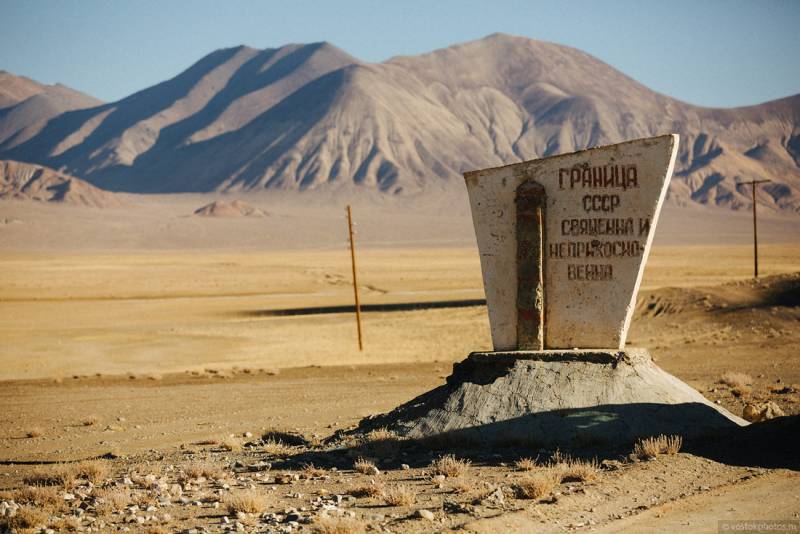
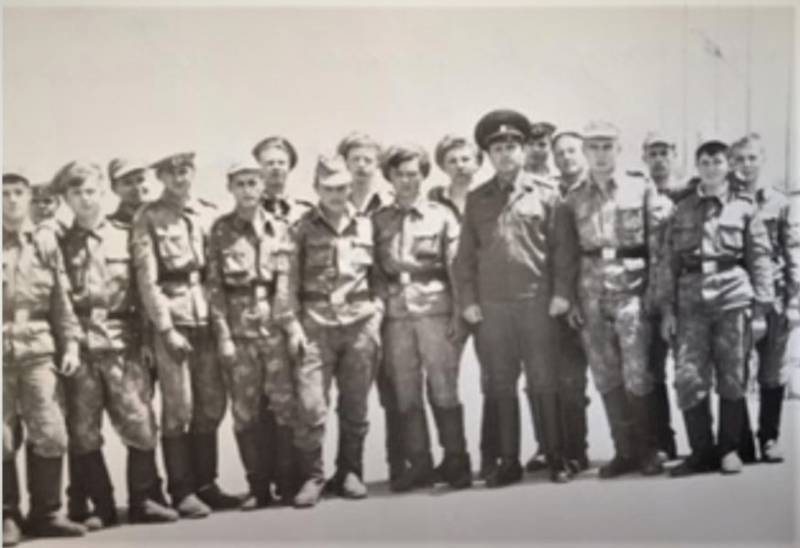
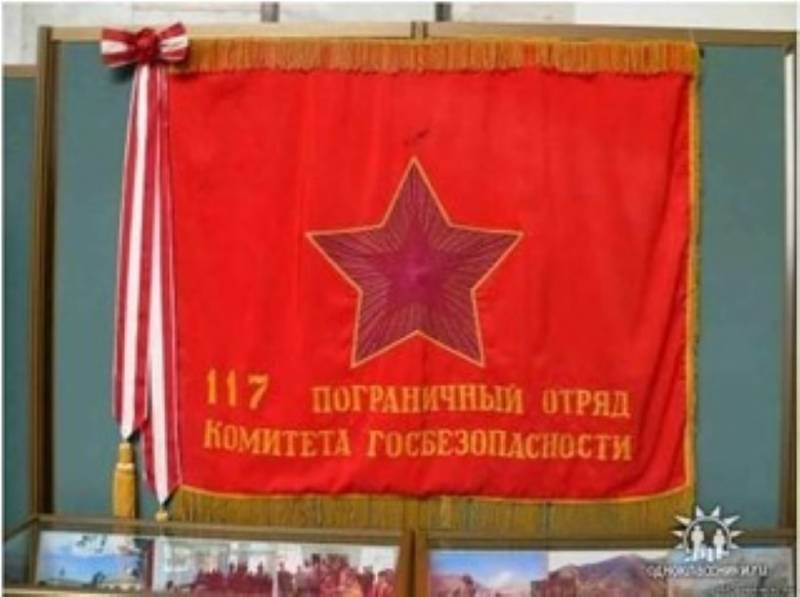
Information